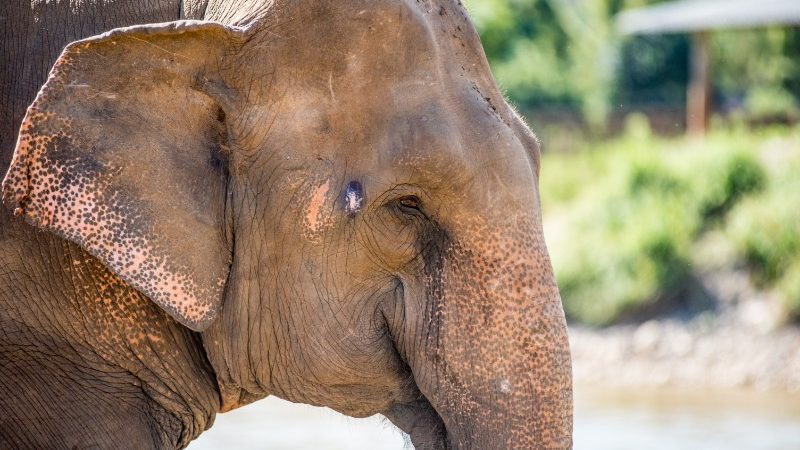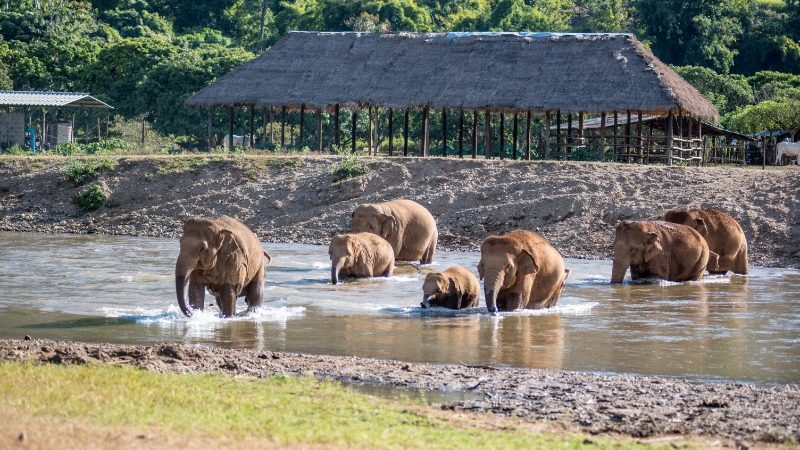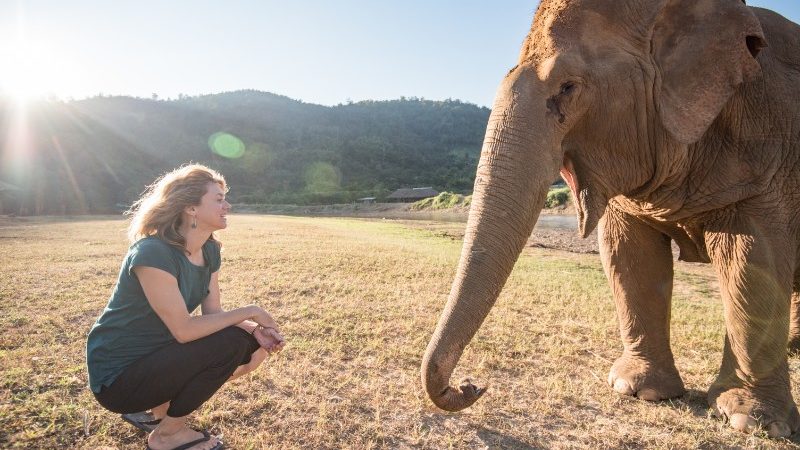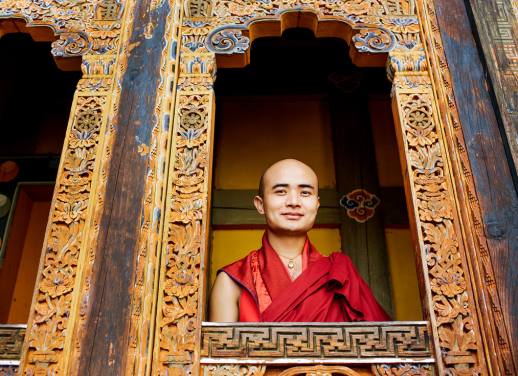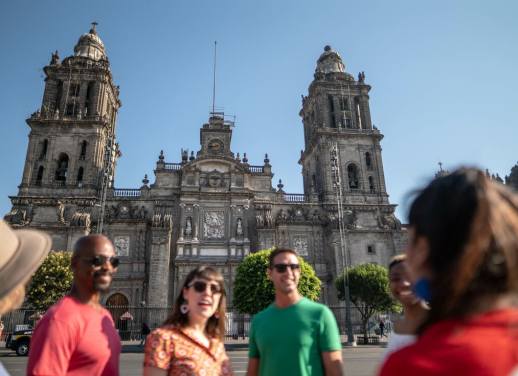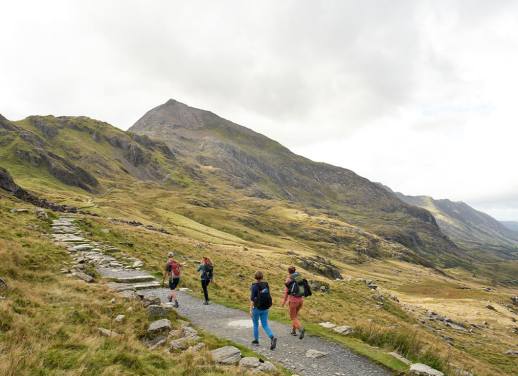‘A mahout is an elephant rider, trainer, or keeper. Usually, a mahout starts as a boy in the family profession when he is assigned an elephant early in its life. They remain bonded to each other throughout their lives’.
That’s Wikipedia’s definition of a mahout and one which will resonate with many tourists who have a romantic vision of the life of mahouts and their relationship with elephants. Sadly, the reality in the elephant tourism industry is very different.
Our new research, working with the Department of Sociology and Anthropology at Chiang Mai University, shows the idealistic, commonly held perception of mahouts is quite far from the truth.
We know with a growing tourism industry and demand for elephant entertainment, the traditional role of mahouts is being increasingly taken over by regular labourers, lacking in skills and training.
It’s not to say mahouts in the traditional Wikipedia defined sense don’t exist – they do, but it’s the exception, not the rule.
The reality is many mahouts take up the job because they cannot find alternative employment or believe it will be an easy job, and many of the elephants suffering for entertainment will have four or more different mahouts on their back during a lifetime. In what is the first comprehensive study of the social and financial situation of mahouts across Thailand, we found there are no winners – both elephants and mahouts are losing out.
In what is the first comprehensive study of the social and financial situation of mahouts across Thailand, we found there are no winners – both elephants and mahouts are losing out.
While elephants suffer from poor living conditions, being forced to carry people on their backs, mahouts are experiencing low pay for a high-risk job, with many suffering injuries and having little financial security. The lack of comprehensive training provided for mahouts, particularly those receiving only one month’s training, puts both mahouts and tourists interacting with elephants under their supervision, at serious risk of injury too.
RELATED: HOW WE CHANGED THE ELEPHANT RIDING INDUSTRY
As well as the animal welfare concerns, the risk of injury to people is something the travel industry should be taking extremely seriously.
Why did we do this research?
Much of our research on the issue of elephant tourism to date has rightly focused on the welfare conditions of elephants suffering in entertainment venues throughout Asia.
Through our work studying wildlife entertainment venues across Thailand, we discovered the role of mahouts is unclear and outdated.
Now with university’s researchers speaking with 200 mahouts at 80 camps across Thailand, we have a stronger understanding of the life of elephant mahouts today.
Better for elephants and people
We know mahouts play a crucial role in the welfare of captive elephants and are an important factor in our work to transition elephant entertainment camps into elephant-friendly venues.
In contrast to the situation in riding and entertainment camps across Thailand, higher welfare, elephant-friendly venues are better for elephants and people, encouraging venue owners to value and care for both elephants and their mahouts*.
Our study showed, 65% of mahouts often or very often use a bull-hook or a sharp nail stick to control their elephant at riding and entertainment camps.But, in true-elephant friendly venues there is no need for such tools and control, except in real emergencies. This is because in higher welfare venues, tourists are not in direct contact with elephants, and instead primarily get to watch elephants move freely. This is better for the elephants and safer for Mahouts.
READ MORE ABOUT INTREPID’S ANIMAL WELFARE POLICY
We’ve seen this for ourselves in places like Elephant Valley Thailand, Mahouts Elephant Foundation (MEF) and Boon Lott’s Elephant Sanctuary (BLES), three of the high welfare venues our Taken for a Ride report showed doing great things for captive elephants.
While an elephant can only be truly free in the wild, these types of venues are what we need to see more of, to improve the lives of the 3,000 elephants currently captive for tourism in Asia.
Intrepid Travel has led the way for elephant protection in the tourism industry and continues to encourage their customers to be animal-friendly travellers.
VISIT THAI ELEPHANTS (RESPONSIBLY) ON A SMALL GROUP TOUR WITH INTREPID TRAVEL
The fact is, if you can ride or touch an elephant, or watch it perform, chances are the elephant has been subjected to cruel training and is living in poor conditions.
This World Elephant Day, do the right thing for elephants and mahouts and only visit elephant-friendly venues when you can observe elephants from afar, where they’re free to just be elephants.
When you donate to The Intrepid Foundation, 100% of the profits go towards ending elephant cruelty. Show your support.
*Our Taken for a Ride report assessing the conditions for 3,000 elephants used in tourism in Asia found that in the lowest scoring venues, mahouts are more likely to be unskilled labourers who have received only brief training on how to handle elephants. Consequently, force and punishment of elephants is applied more commonly. At the highest-ranking venues, our study found that mahouts are more highly recognised by the venues, often personally introduced to the visitors, allowing them to be respected for their skills. At these venues, the mahouts also receive training in managing elephants more humanely, without using force.
All images by Patrick O’Neill.

